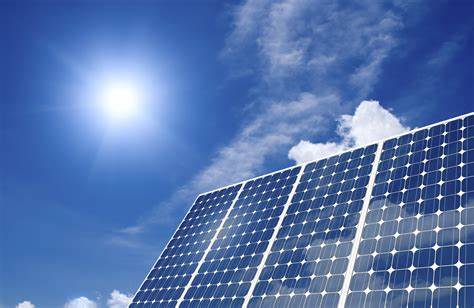
By Edson Baraukwa | Africa Guardian
Across Africa, the effects of climate change are increasingly widening the gaps in access to essential resources like food, water, and energy. Despite the continent’s vast arable lands, rich mineral reserves, and immense potential for solar and wind power, many African countries remain vulnerable to climate shocks. These shocks, combined with heavy debt burdens, high unemployment, and persistent poverty, threaten to undermine the progress being made.
Africa possesses most of the resources and tools necessary to become a global economic powerhouse, supported by improved business environments and a growing pool of skilled talent. However, the continent’s most significant challenge is the worsening impact of climate change, which continues to disrupt lives and livelihoods. The upcoming United Nations Climate Change Conference (COP29) in Azerbaijan will offer a crucial platform for addressing climate security, particularly for Africa, the most affected region.
Zambia, like other southern African nations, has experienced some of the worst consequences of climate change. The country recently faced its most severe drought in 40 years, prompting a national emergency declaration. The drought devastated nearly one million hectares of maize – Zambia’s staple crop – and caused water shortages for livestock and wildlife. Additionally, the country lost over 500 megawatts of hydroelectric power, resulting in widespread power outages that disrupted critical services such as hospitals, schools, and businesses.
These climate-induced challenges are not unique to Zambia. Across the continent, severe droughts, heat waves, floods, and cyclones are straining natural resources, damaging infrastructure, and displacing millions. These climate shocks are also exacerbating social disruptions and increasing the risk of conflict. As a result, climate change has emerged as a serious national security threat, hindering Africa’s progress toward achieving food, water, and energy security.
The financial strain caused by climate change further complicates the situation. Many African governments are grappling with legacy debt, leaving them with limited fiscal space to address the crisis. If left unchecked, climate change could push an additional 130 million people into poverty globally by 2030, threatening to reverse the progress made toward achieving the Sustainable Development Goals (SDGs).
At COP29, it is imperative that the global community commits to ambitious financing solutions for Africa. Rich countries, whose heavily polluting industries contributed significantly to the climate crisis, must play a leading role in providing financial support. Africa alone can only meet 10% of the estimated US$2.4 trillion in climate finance needed by 2030. To close this gap, there must be a concerted effort to reform the global financial system, with a focus on grants and concessionary financing. Without such reforms, Africa risks sliding deeper into debt while trying to address both climate and development challenges.
Africa’s infrastructure must also be modernized to withstand the growing impact of climate change. The continent already faces significant energy challenges, with 18 of the 20 countries with the least access to electricity located in Sub-Saharan Africa. Population growth continues to outpace energy infrastructure development, leaving 571 million people without access to electricity in 2022. Moreover, 79% of Sub-Saharan Africans still rely on polluting fuels for cooking, posing long-term health risks, especially for women and children.
Despite these challenges, there are opportunities for progress. Initiatives like Zambia’s 1000+ Minigrids Initiative aim to increase access to modern energy and promote productive uses of electricity in rural communities. As the costs of solar and onshore wind power continue to fall globally, integrated energy solutions combining centralized and decentralized approaches could meet Africa’s diverse energy needs. For instance, solar-powered water pumps, cold storage for food preservation, and agri-processing machinery can enhance rural livelihoods while boosting climate resilience and food security.
Africa’s rich mineral resources, including cobalt, copper, and lithium, also offer significant opportunities. These minerals are essential for the global transition to a net-zero economy, driving demand for batteries, electric vehicles, and renewable energy equipment. By capitalizing on these resources, African countries can strengthen their industrial and electrification agendas while securing a larger share of global markets.
In a rapidly changing climate, it is crucial that African governments prioritize the interconnections between energy, food, water, and industrial systems. By doing so, the continent can ensure a more secure and prosperous future for its people while contributing to the global fight against climate change.
___
